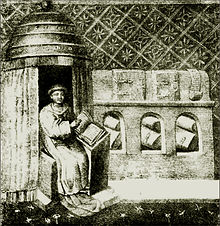| This article relies largely or entirely on a single source. Relevant discussion may be found on the talk page. Please help improve this article by introducing citations to additional sources. Find sources: "Jacques de Guyse" – news · newspapers · books · scholar · JSTOR (November 2013) |
You can help expand this article with text translated from the corresponding article in French. (November 2013) Click for important translation instructions.
|

Jacques de Guyse (Latin: Iacobus de Guisia; 1334−1399) was a Franciscan historian of the County of Hainaut.
Guyse was born in 1334 in Mons in the County of Hainaut. After studying at the University of Paris, where he obtained a doctorate in theology, he returned to Hainaut, where he died at Valenciennes in 1399.
His main work is the wide-ranging Annales Historiae Illustrium Principum Hannoniae ("Annals of the History of Illustrious Princes of Hainaut") in which he covered the history of Hainaut from its mythological beginnings to the year 1254. He cited the otherwise unknown historians Lucius of Tongres, Hugh of Toul, Nicolas Rucléri and Clairembault. Initially this work did not get much attention, but half a century later it was translated from Latin to French by Jean Wauquelin and richly illuminated.
References
- Robert B. Rigoulot, "Imaginary History and Burgundian State-building: The Translation of the Annals of Hainault", Essays in Medieval Studies 9 (1992), 33–40.